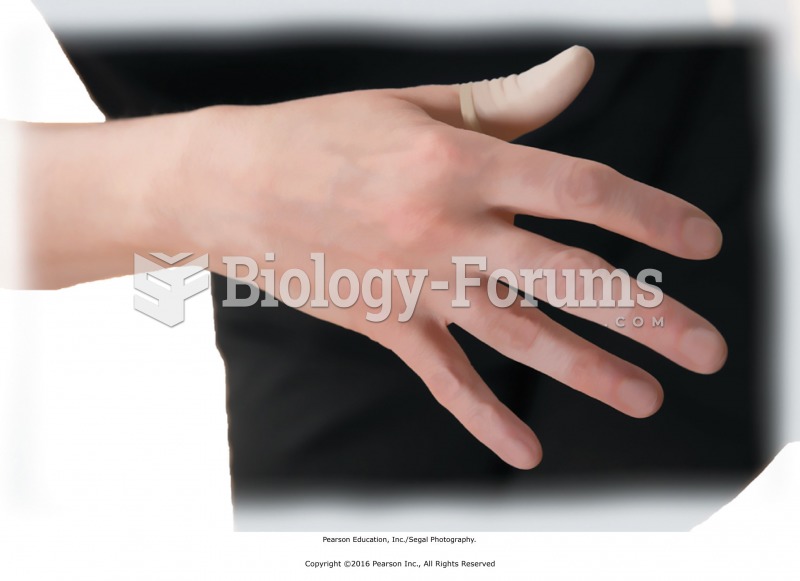|
|
|
Vaccines cause herd immunity. If the majority of people in a community have been vaccinated against a disease, an unvaccinated person is less likely to get the disease since others are less likely to become sick from it and spread the disease.
Egg cells are about the size of a grain of sand. They are formed inside of a female's ovaries before she is even born.
Though the United States has largely rejected the metric system, it is used for currency, as in 100 pennies = 1 dollar. Previously, the British currency system was used, with measurements such as 12 pence to the shilling, and 20 shillings to the pound.
The most common treatment options for addiction include psychotherapy, support groups, and individual counseling.
Oxytocin is recommended only for pregnancies that have a medical reason for inducing labor (such as eclampsia) and is not recommended for elective procedures or for making the birthing process more convenient.
 Mammography. (a) A health-care professional assists the patient to ensure the breast is placed ideal
Mammography. (a) A health-care professional assists the patient to ensure the breast is placed ideal
 Tumor marker analysis of a patient undergoing therapy, who (1) after surgery had residual disease ...
Tumor marker analysis of a patient undergoing therapy, who (1) after surgery had residual disease ...





